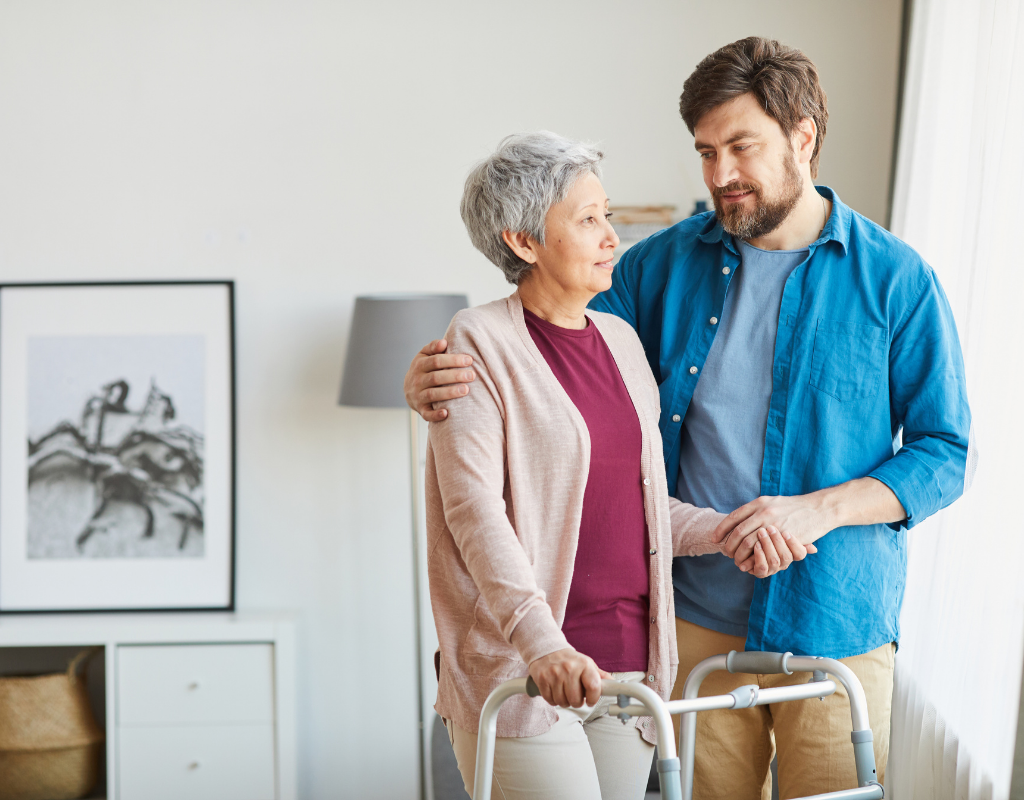Are you worried that your elderly parent is struggling to remain independent and that you can’t be there every day to make sure they are safe? There are millions of us “informal caregivers” navigating this very same issue of how to monitor an elderly parent when you can’t be there 24 hours a day.
Fortunately, there are ways for family caregivers to provide care and oversight to aging loved ones. Innovations in technology, such as monitors, sensors, and alert systems, are allowing us to keep up with aging parents and do it from afar.
I will show you four different types of technology that you can use to monitor your aging parents to provide you with the peace-of-mind you need.
What can elderly monitoring systems do?
- Notify you if your loved one falls or requests emergency services
- Allows you to communicate with your loved one without using their cell phone
- Provide you with a daily dashboard of activity through an app on your phone
- Provide information on whether your loved one has taken their medication or missed a dose
- Provide you with information that you can share with their physician
Let’s take a look at the four kinds of monitoring systems.
Grandparent Monitors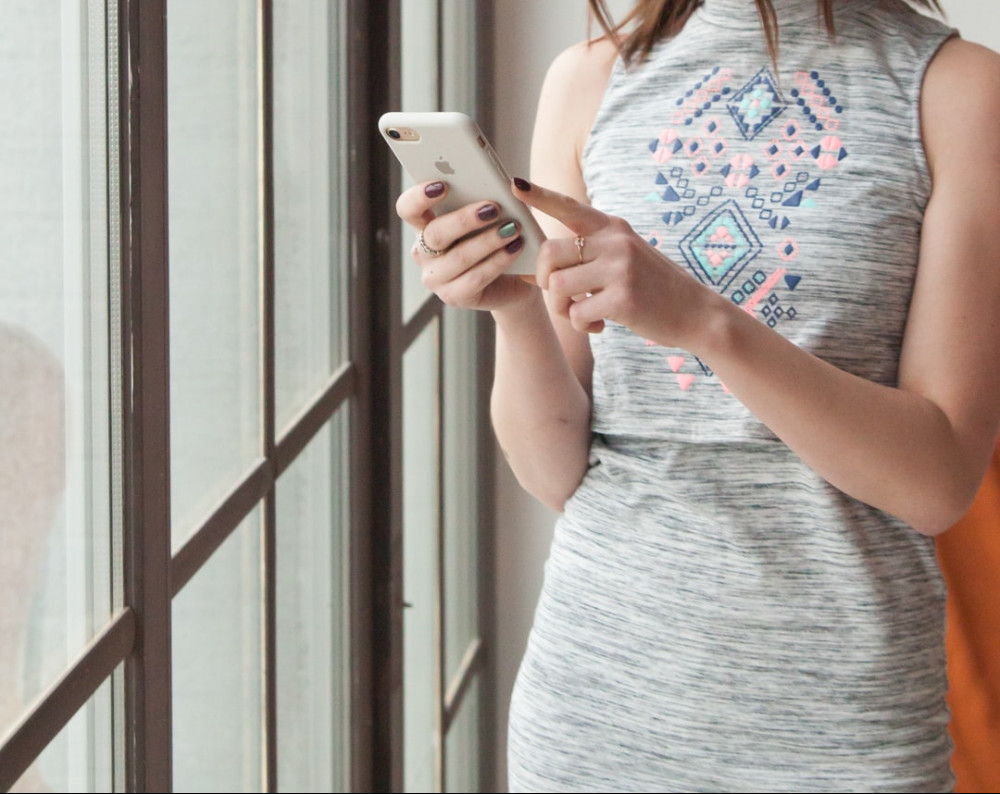
A grandparent monitor is a generic term for a device that passively monitors your loved one and can track their movements and activities 24 hours a day.
They come with cameras and motion detectors so you can monitor every room in the house from an app on your phone.
There are two that I recommend.
Blurams Security Camera
With the Blurams Security Camera you can stay connected 24/7 with live stream direct to your phone day and night. It also has advanced night vision and is Alexa-capable. This provides you with two-way audio that allows you to talk with your loved one through hands-free calling or a voice command.
You can access 4 wifi security cameras simultaneously on one screen in your phone app to monitor the entire home. If your loved one is concerned about privacy, there is a feature that allows you to blur certain areas of the home as a privacy area.
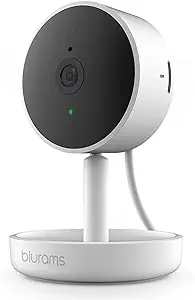
Envoy AtHome Motion Sensors
This is a less intrusive product for loved ones who are concerned about privacy and don’t want cameras in the house. Envoy AtHome uses a series of motion detectors placed throughout your loved one’s home that are connected to your phone through a mobile app.
There are no cameras or audio devices in the home.
Information about your loved one’s daily routine is recorded and displayed in the app. You or your caregiver will get alerts on your phone if certain events occur such as:
- Your mom or dad leaves the house or comes back in
- If they spend too much time in the bathroom
- What room they are currently in
- What time the woke up and started their day
- And other events that you want to be notified about
It’s completely customizable.
Baby Monitors for Dementia
If your biggest concern is monitoring your loved one during the night, as is the case with a lot of older adults with dementia, a less expensive baby monitor might be the answer. I used a baby monitor for my mom which allowed me to know when she needed help during the night.
Baby monitors can provide:
- Audio and video monitoring capability
- A discrete way of checking in on mom or dad without diminishing their dignity
- Two-way audio communication so you can gently remind them to go back to bed without having to get up yourself
Here are two great, inexpensive options.
VTech VM3252 Video Baby Monitor
This monitor is plug-and-play. It’s ready to use right out of the box and is very intuitive. It’s features include:
- 1,000 foot long range
- Auto night vision
- 2-way audio talk
- Temperature sensor
- Wall-mountable camera with bracket
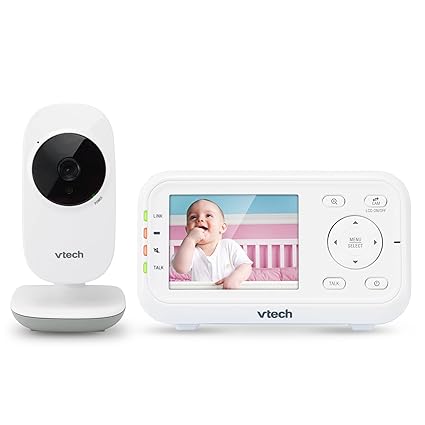
ANMEATE Video Baby Monitor with Digital Camera
Here is another popular monitor that won’t break the bank. Features include:
- Wireless video monitor with high-quality color screen
- Temperature monitor
- 969 foot transmission range
- Two-way talk and night vision
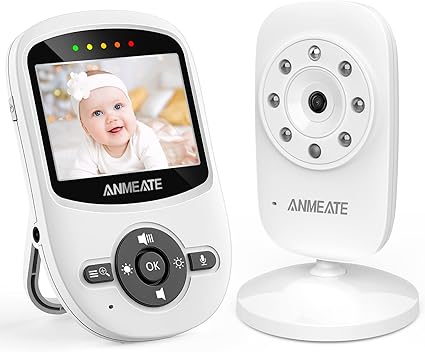
Movement Sensors
Movement sensors such as bed pads and floor mats use pressure sensors that can detect your loved one’s movement and will trigger an alarm if they get out of bed or step on the sensor pad.
Movement sensors such as floor mats cannot tell the difference between someone falling or just stepping out of bed. But, they are a good option if you want to be alerted if there is any movement in the room. A popular movement sensor is the Smart Caregiver Floor Mat.
Movement sensors also come in the form of wearables such as necklaces, bracelets and watches. These are good for detecting falls in the house and your parent can push a button if they have an emergency.
Medical Alert Systems
A medical alert system consists of a base station with wearable devices that can detect falls and allow your loved one to call for help if there is an emergency. The system is monitored 24/7 by qualified staff who can quickly assess the situation, communicate with the person requesting assistance, and send help immediately.
Most use wireless and/or GPS technology so seniors are covered if they leave the house as well.
My mom had a MobileHelp Medical Alert System which was great and is one of the highest rated alert systems available. I wrote a detailed review of MobileHelp if you want more information.
Summary
There are a lot of options available to help you monitor your elderly parent. Every caregiving situation is different and every elderly person will have a different opinion as to what type of monitoring system they will allow in their home.
I hope I’ve given you a good overview of the options out there and that you’ll be able to find one that will work for your situation.
Please leave a note in the comment section below if you have any questions.

